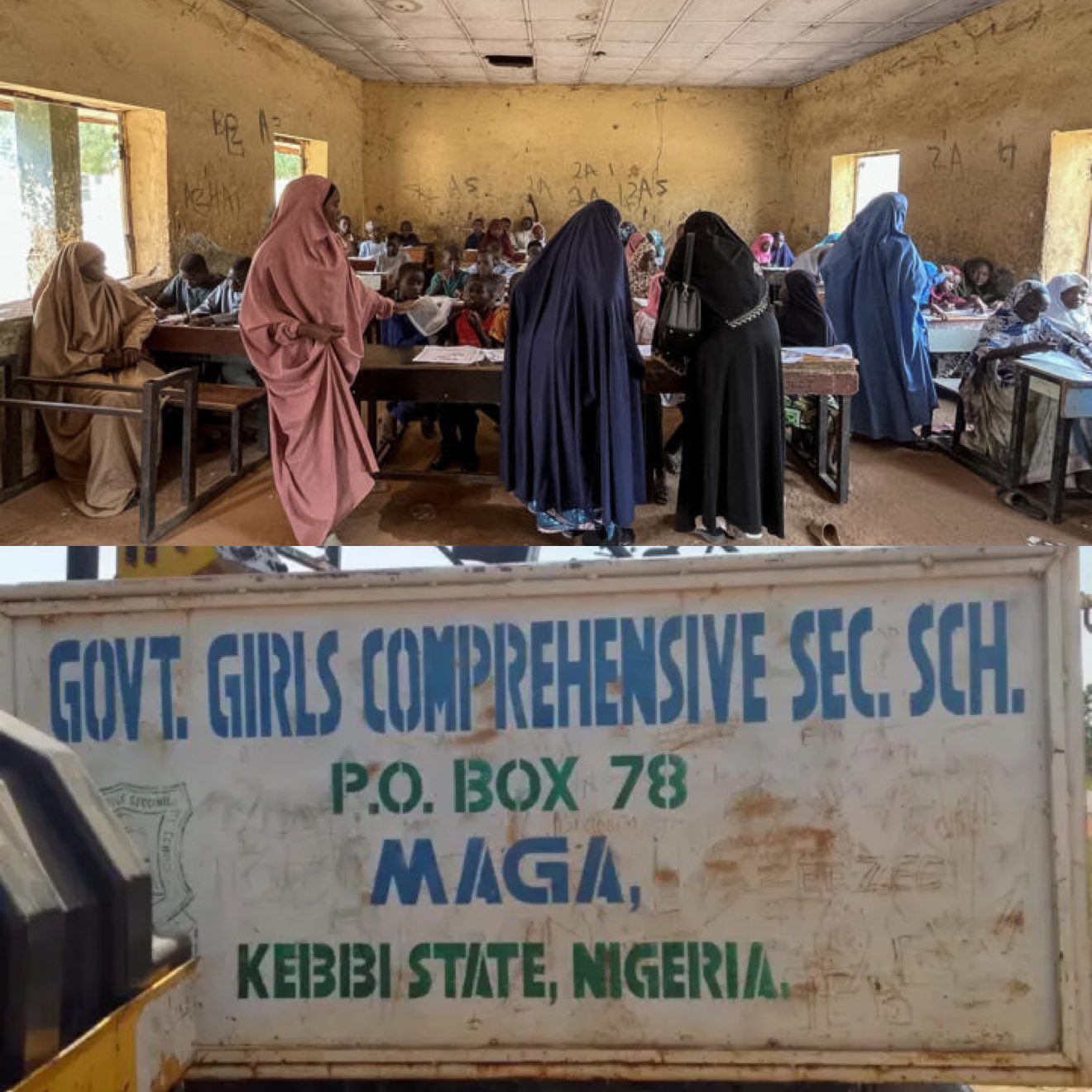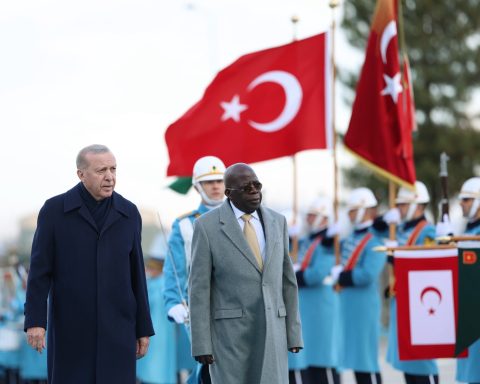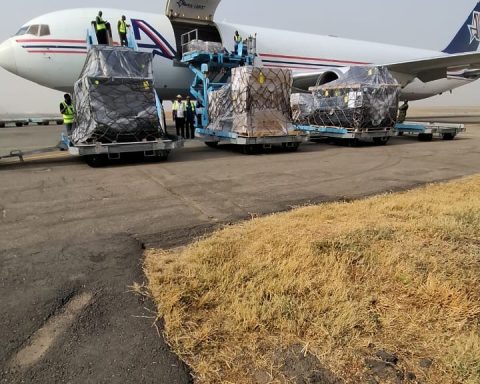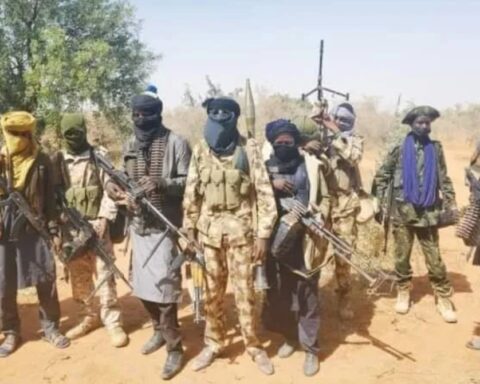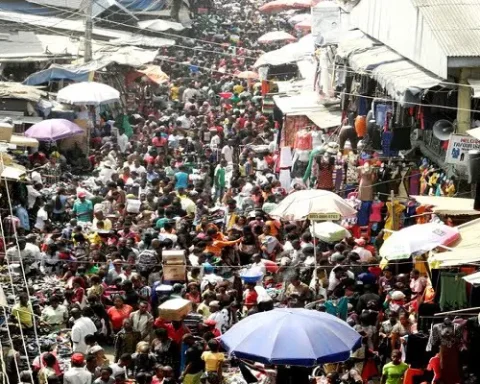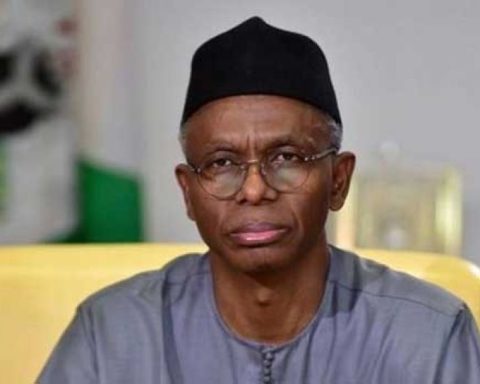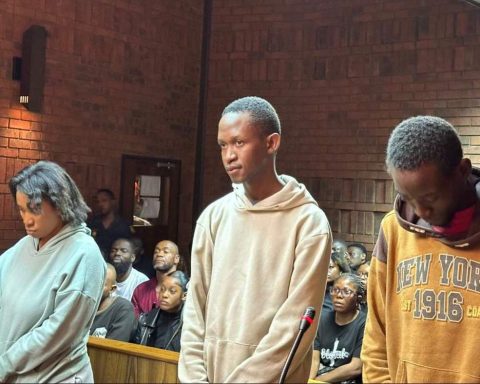Armed gunmen launched a coordinated assault on Government Girls Comprehensive Secondary School in Maga, Kebbi State, on Monday, killing the vice principal and abducting 25 female students in one of the latest mass kidnappings to hit Nigeria’s northwest.
Police spokesperson Nafiu Abubakar Kotarkoshi confirmed the incident, saying the attackers armed with rifles and using coordinated tactics stormed the school around 4:00 a.m., engaged security personnel in a gun battle, scaled the perimeter fence, and seized the students.
Vice Principal Hassan Yakubu Makuku was shot dead while attempting to resist the intruders, and another staff member sustained gunshot injuries.
Join our WhatsApp ChannelSecurity agencies have since launched a major search-and-rescue operation, deploying police tactical units, soldiers, and local vigilante groups to comb suspected escape routes and surrounding forests.
The incident has sparked widespread condemnation, with former Anambra State governor and Labour Party presidential candidate Peter Obi describing the twin tragedies in Kebbi and Zamfara as “devastating and unacceptable losses.”
READ ALSO : Kidnappers Not Different From Terrorists, Says HURIWA
Tinubu Charges Military To End Insecurity
In a statement issued from Monaco, Obi said:
“My heart is heavy as I receive the heartbreaking news from Kebbi State about the attack on Maga Comprehensive Girls’ Secondary School, which led to the abduction of young female students and the killing of a staff member. Entire communities are living in fear; schools safe havens for learning are now vulnerable targets. This is not the Nigeria we should accept.”
Obi also lamented a separate attack in Fegin Baza village, Tsafe LGA of Zamfara State, where bandits reportedly killed three persons and abducted 64 others.
He called on governments at all levels to urgently overhaul the nation’s security architecture, intensify efforts to rescue the abducted students, and ensure that schools and vulnerable communities are properly protected.
“Our children must never be left at the mercy of terrorists,” he said, offering condolences to bereaved families and praying for the safe return of the kidnapped girls.
Nigeria’s Minister of Information and National Orientation, Mohammed Idris, also issued a statement, assuring Nigerians that the Federal Government is fully committed to rescuing the abducted students.
“The Federal Government expresses deep concern and solidarity with the families of the abducted students. President Tinubu has reiterated that protecting every Nigerian, especially schoolchildren, remains a solemn responsibility of the State,” the minister said.
He added that security and intelligence agencies have been given clear directives to locate, rescue, and safely return the students, while ensuring that those responsible are brought to justice.
The minister noted that the government is recalibrating its security architecture, strengthening intelligence capabilities, and boosting cooperation with ECOWAS, the African Union, and the Multinational Joint Task Force to disrupt terrorist and criminal networks.
“We urge the public to remain calm and confident. The government will not relent until this objective is achieved,” Idris assured.
Mass abductions continue to plague Nigeria’s northwest, driven by armed gangs operating across vast forest regions. Despite repeated government assurances, attacks on schools persist, drawing renewed parallels with the 2014 Chibok abduction, when Boko Haram kidnapped 270 schoolgirls many of whom remain missing.
As efforts intensify to rescue the Kebbi students, the attack has again underscored the precarious state of security across parts of the country, and the urgent need for sustained, effective action.
Amanze Chinonye is a Staff Correspondent at Prime Business Africa, a rising star in the literary world, weaving captivating stories that transport readers to the vibrant landscapes of Nigeria and the rest of Africa. With a unique voice that blends with the newspaper's tradition and style, Chinonye's writing is a masterful exploration of the human condition, delving into themes of identity, culture, and social justice. Through her words, Chinonye paints vivid portraits of everyday African life, from the bustling markets of Nigeria's Lagos to the quiet villages of South Africa's countryside . With a keen eye for detail and a deep understanding of the complexities of Nigerian society, Chinonye's writing is both a testament to the country's rich cultural heritage and a powerful call to action for a brighter future. As a writer, Chinonye is a true storyteller, using her dexterity to educate, inspire, and uplift readers around the world.
- Amanze Chinonye
- Amanze Chinonye
- Amanze Chinonye
- Amanze Chinonye
- Amanze Chinonye
- Amanze Chinonye
- Amanze Chinonye
- Amanze Chinonye
- Amanze Chinonye
- Amanze Chinonye
- Amanze Chinonye
- Amanze Chinonye
- Amanze Chinonye
- Amanze Chinonye
- Amanze Chinonye
- Amanze Chinonye
- Amanze Chinonye
- Amanze Chinonye
- Amanze Chinonye
- Amanze Chinonye
- Amanze Chinonye
- Amanze Chinonye
- Amanze Chinonye
- Amanze Chinonye
- Amanze Chinonye
- Amanze Chinonye
- Amanze Chinonye
- Amanze Chinonye
- Amanze Chinonye
- Amanze Chinonye
- Amanze Chinonye
- Amanze Chinonye
- Amanze Chinonye
- Amanze Chinonye
- Amanze Chinonye
- Amanze Chinonye
- Amanze Chinonye
- Amanze Chinonye
- Amanze Chinonye
- Amanze Chinonye
- Amanze Chinonye
- Amanze Chinonye
- Amanze Chinonye
- Amanze Chinonye
- Amanze Chinonye
- Amanze Chinonye
- Amanze Chinonye
- Amanze Chinonye
- Amanze Chinonye
- Amanze Chinonye
- Amanze Chinonye
- Amanze Chinonye
- Amanze Chinonye
- Amanze Chinonye
- Amanze Chinonye
- Amanze Chinonye
- Amanze Chinonye
- Amanze Chinonye
- Amanze Chinonye
- Amanze Chinonye
- Amanze Chinonye
- Amanze Chinonye
- Amanze Chinonye
- Amanze Chinonye
- Amanze Chinonye
- Amanze Chinonye
- Amanze Chinonye
- Amanze Chinonye
- Amanze Chinonye
- Amanze Chinonye
- Amanze Chinonye
- Amanze Chinonye
- Amanze Chinonye
- Amanze Chinonye
- Amanze Chinonye
- Amanze Chinonye
- Amanze Chinonye
- Amanze Chinonye
- Amanze Chinonye
- Amanze Chinonye
- Amanze Chinonye
- Amanze Chinonye
- Amanze Chinonye
- Amanze Chinonye
- Amanze Chinonye
- Amanze Chinonye
- Amanze Chinonye
- Amanze Chinonye
- Amanze Chinonye
- Amanze Chinonye
- Amanze Chinonye
- Amanze Chinonye
- Amanze Chinonye
- Amanze Chinonye
- Amanze Chinonye
- Amanze Chinonye
- Amanze Chinonye
- Amanze Chinonye
- Amanze Chinonye
- Amanze Chinonye
- Amanze Chinonye
- Amanze Chinonye
- Amanze Chinonye
- Amanze Chinonye
- Amanze Chinonye
- Amanze Chinonye
- Amanze Chinonye
- Amanze Chinonye
- Amanze Chinonye
- Amanze Chinonye
- Amanze Chinonye
- Amanze Chinonye
- Amanze Chinonye
- Amanze Chinonye
- Amanze Chinonye
- Amanze Chinonye
- Amanze Chinonye
- Amanze Chinonye
- Amanze Chinonye
- Amanze Chinonye
- Amanze Chinonye
- Amanze Chinonye
- Amanze Chinonye


